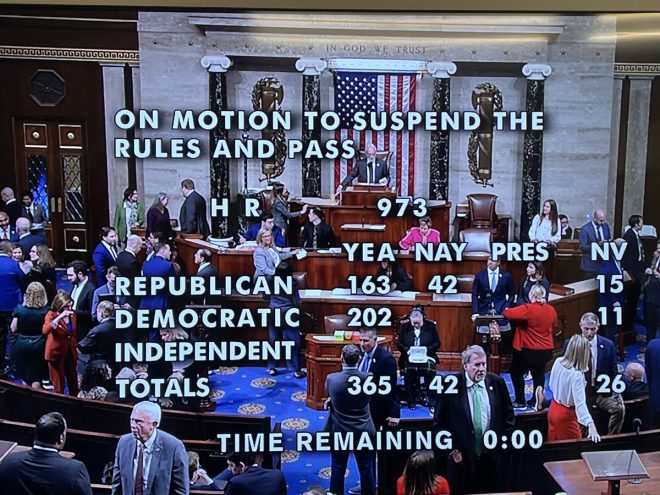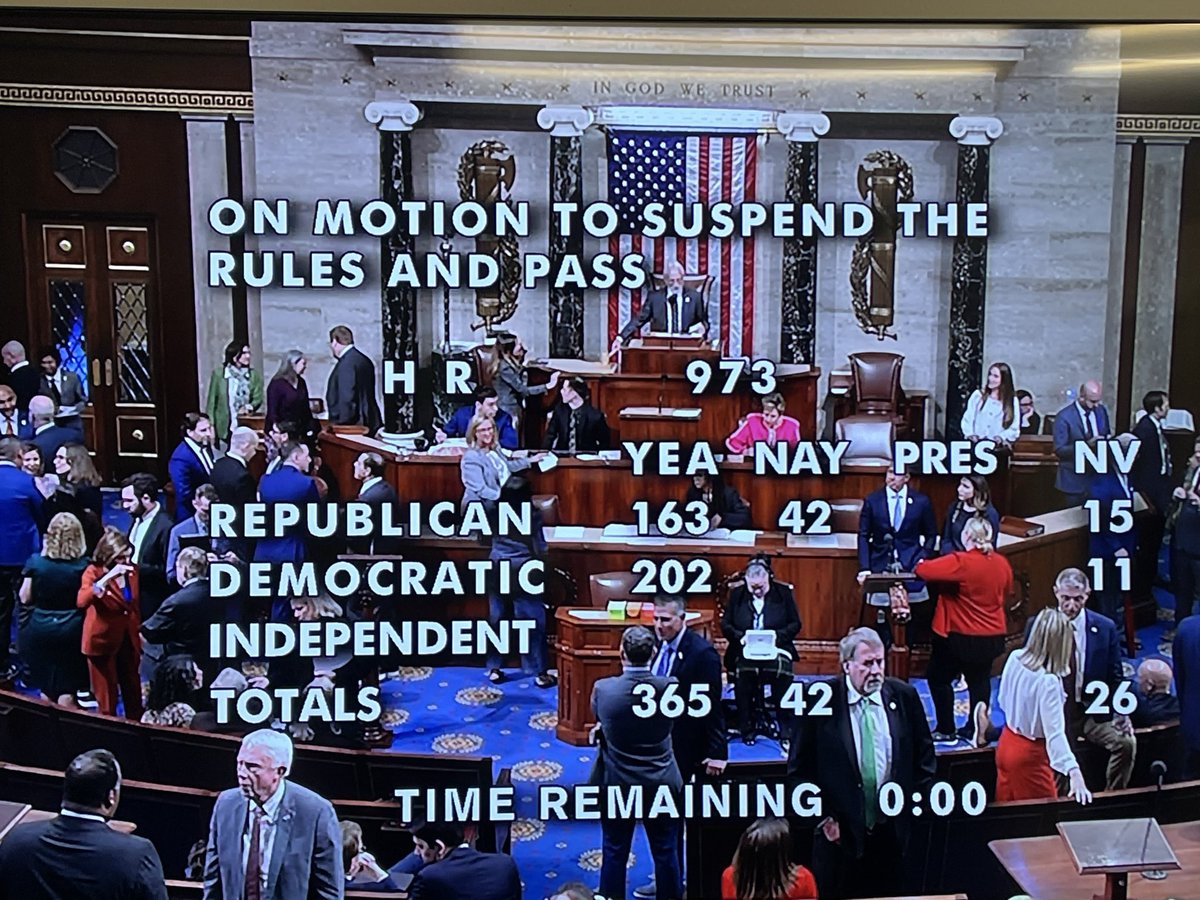
Understanding the New Bipartisan Bill on Lithium-Ion Battery Safety Standards
In a significant legislative move, the U.S. House of Representatives has passed a bipartisan bill aimed at establishing safety standards for lithium-ion batteries. This bill, which received a robust vote of 365–42, addresses a pressing issue in urban safety, particularly in New York City, where incidents related to lithium-ion batteries have dramatically increased in recent years.
The Growing Concern: Lithium-Ion Battery Fires
Lithium-ion batteries, widely used in various consumer electronics and electric vehicles, have become a focal point of fire hazards. Since 2019, New York City has witnessed an alarming surge in battery-related fires—over an 800% increase. This unprecedented rise has raised serious concerns among city officials, residents, and safety advocates, prompting the need for regulatory intervention.
Key Provisions of the Bipartisan Bill
The newly passed bill aims to implement comprehensive safety standards for lithium-ion batteries. Here are some of its critical components:
- Manufacturing Standards: The bill will require manufacturers to adhere to specific safety protocols during the production of lithium-ion batteries. This includes ensuring the batteries are made from quality materials and are designed to withstand potential hazards.
- Testing and Certification: To further enhance safety, the bill mandates rigorous testing and certification processes before batteries can be sold to consumers. This will ensure that only safe and reliable batteries are available in the market.
- Consumer Education: An essential aspect of the legislation involves educating consumers about the safe use and disposal of lithium-ion batteries. This initiative aims to reduce the likelihood of accidents caused by improper handling.
- Collaboration with Fire Departments: The bill encourages collaboration between battery manufacturers and local fire departments to establish best practices and response protocols in case of battery-related incidents.
The Impact of the Bill on Fire Safety
By implementing these safety standards, the bill aims to protect consumers and reduce the overall number of fires caused by lithium-ion batteries. Fire departments across New York City have reported that many of the recent fires have resulted from battery malfunctions or improper storage. With stricter regulations in place, it is anticipated that manufacturers will prioritize safety, leading to a decrease in fire incidents attributed to these batteries.
- YOU MAY ALSO LIKE TO WATCH THIS TRENDING STORY ON YOUTUBE. Waverly Hills Hospital's Horror Story: The Most Haunted Room 502
Bipartisanship in Action
The overwhelming support for this bill across party lines underscores the urgency of the issue at hand. Lawmakers from both sides of the aisle recognize the need for enhanced safety measures, which demonstrates a united front in prioritizing public safety. This bipartisanship is crucial, as it allows for swift action against a growing threat that impacts many citizens.
Broader Implications for Urban Safety
The passage of this bill is not just a win for New York City; it sets a precedent for other urban areas grappling with similar issues related to lithium-ion batteries. As cities across the United States embrace electric vehicles and battery-powered devices, the need for comprehensive safety regulations will become increasingly vital. This legislation could pave the way for national standards, ensuring that all cities can benefit from enhanced safety measures.
The Role of Community Awareness
While legislative action is essential, community awareness and education play a critical role in mitigating risks associated with lithium-ion batteries. Residents are encouraged to educate themselves on proper battery usage, storage, and disposal methods. Local workshops and information campaigns can further empower consumers to make informed choices regarding their battery-operated devices.
Future Steps and Ongoing Challenges
The passage of this bipartisan bill marks a crucial step in addressing the safety concerns surrounding lithium-ion batteries. However, ongoing challenges remain. Continuous monitoring of battery incidents, adapting regulations based on emerging technologies, and fostering public awareness will be essential to ensure the effectiveness of the new safety standards.
Conclusion
In conclusion, the bipartisan bill passed by the house to set safety standards for lithium-ion batteries is a significant milestone in urban safety legislation. With an 800% increase in battery-related fires since 2019 in New York City, this bill addresses a critical need for regulatory oversight in the rapidly evolving landscape of battery technology. As cities continue to adopt more electric devices and vehicles, establishing safety standards is paramount to protecting consumers and preventing potentially devastating fires. The commitment shown by lawmakers from both parties highlights the importance of public safety and sets a precedent for future legislative efforts aimed at safeguarding communities. Through education, regulation, and community engagement, we can work together to ensure that the benefits of lithium-ion technology do not come at the cost of safety.

BREAKING: By a 365–42 vote, the House has passed my bipartisan bill to set safety standards for lithium-ion batteries — now the fastest-growing cause of fires in New York City.
Since 2019, lithium-ion battery fires have soared by more than 800%, creating an unprecedented fire… pic.twitter.com/LdfvzhUpoK
— Ritchie Torres (@RitchieTorres) April 28, 2025
BREAKING: By a 365–42 Vote, the House Has Passed My Bipartisan Bill to Set Safety Standards for Lithium-Ion Batteries
When the House of Representatives voted 365 to 42 in favor of a bipartisan bill aimed at setting safety standards for lithium-ion batteries, it sent shockwaves through communities that have been grappling with an alarming rise in battery-related fires. This legislation comes in direct response to a pressing issue: lithium-ion batteries have now become the fastest-growing cause of fires in New York City. The urgency of the situation cannot be overstated, as data shows that since 2019, fires linked to these batteries have soared by an astonishing 800%.
But what exactly does this bill entail, and why is it so critical right now? Let’s break it down.
The Rise of Lithium-Ion Battery Fires
Lithium-ion batteries are everywhere; they power our smartphones, laptops, and electric vehicles. However, as their use has surged, so too have the incidents of fires caused by these batteries. According to reports, the number of lithium-ion battery fires in New York City has skyrocketed over recent years, leading to tragic outcomes and concerns about public safety.
The spike in incidents can be attributed to several factors, including the increasing number of devices using these batteries and the prevalence of counterfeit or substandard products entering the market. In many cases, these batteries can overheat, catch fire, or even explode when damaged or improperly charged.
This is where the new legislation comes into play. By setting stringent safety standards for lithium-ion batteries, the bill aims to mitigate risks and ensure that both manufacturers and consumers are protected.
What the Bill Includes
So, what exactly is in this bipartisan bill? It calls for comprehensive safety standards for lithium-ion batteries, which could include:
– **Testing Requirements**: Manufacturers will be required to conduct thorough testing to ensure that their batteries meet safety standards before they hit the market.
– **Labeling Guidelines**: The bill may include guidelines for labeling batteries, helping consumers make informed choices about the products they purchase.
– **Education Initiatives**: Part of the legislation could focus on educating the public about the proper use and disposal of lithium-ion batteries to minimize risks.
– **Enforcement Mechanisms**: There will likely be measures in place to enforce these standards and hold manufacturers accountable for non-compliance.
By addressing these critical areas, the bill aims to create a safer environment for consumers and reduce the incidence of fires linked to lithium-ion batteries.
Why This Legislation Matters
You might be wondering, why is this legislation so important? For starters, the increase in lithium-ion battery fires poses a significant risk not just to individuals but to entire communities. Each fire can lead to loss of property, injuries, or even fatalities.
In a city as densely populated as New York, the potential for widespread damage is even greater. The passage of this bill signals that lawmakers recognize the urgency of this issue and are willing to take action to protect their constituents.
Moreover, setting safety standards could pave the way for innovation in battery technology. Manufacturers will be incentivized to create safer, more reliable products, ultimately benefiting consumers while also fostering a sense of responsibility within the industry.
Community Reactions
The response to this legislation has been overwhelmingly positive, with many community leaders and safety advocates applauding the move. Ritchie Torres, a key proponent of the bill, shared his excitement on Twitter, highlighting the importance of these safety standards in protecting New Yorkers from the escalating danger posed by lithium-ion batteries.
Local fire departments have also expressed their support, emphasizing that the legislation could help reduce the number of emergency calls related to battery fires. As more people become aware of the potential hazards, there’s hope that community members will take greater precautions when using and disposing of these batteries.
What Can You Do?
As consumers, we all have a role to play in ensuring our safety and the safety of those around us. Here are some practical steps you can take:
– **Educate Yourself**: Stay informed about the types of lithium-ion batteries you’re using. Understand the risks and the proper usage guidelines.
– **Purchase Wisely**: Buy batteries and devices from reputable manufacturers. Avoid counterfeit products that may not meet safety standards.
– **Dispose of Batteries Properly**: When a battery reaches the end of its life, make sure to dispose of it according to local regulations. Many communities offer special collection days for hazardous waste.
– **Report Unsafe Products**: If you encounter a battery or device that appears to be unsafe, report it to the appropriate authorities. Your vigilance can help prevent accidents.
By taking these steps, you can contribute to creating safer environments and supporting the efforts of lawmakers in implementing effective safety standards.
The Future of Battery Safety
Looking ahead, the future of battery safety seems promising, especially with the enactment of this new legislation. The focus on safety standards could lead to the development of advanced technologies that enhance battery performance while minimizing risks.
As we navigate an increasingly tech-driven world, it’s crucial to balance innovation with safety. The bipartisan bill represents a significant step toward achieving that balance, ensuring that we can enjoy the benefits of lithium-ion batteries without compromising safety.
Final Thoughts
The recent passage of the bipartisan bill aimed at setting safety standards for lithium-ion batteries is a landmark moment in public safety legislation. With fires related to these batteries on the rise, it’s clear that action was needed. By establishing comprehensive safety measures, we can protect ourselves and our communities from the dangers posed by these essential yet potentially hazardous devices.
As we move forward, let’s stay engaged and informed. The collective efforts of lawmakers, manufacturers, and consumers alike will be vital in ensuring the safety of lithium-ion batteries and preventing future tragedies. Together, we can create a safer future for everyone.
